— 9 min read
Mental Health Toolbox Talks: Creating a Safe & Successful Jobsite


Last Updated Oct 8, 2024

Jacob Kunken
Solutions Engineer, Heavy Civil
28 articles
Jake Kunken currently works as Solutions Engineer for Procore's Heavy Civil division. He brings 14 years of experience working in various construction roles in New York and Colorado, including laborer, assistant carpenter, carpenter, assistant superintendent, superintendent, construction manager, safety manager, and project manager. Jake also spent time in EHS as an environmental engineer for Skanska. He’s worked on more than 40 commercial projects from ground-up, to heavy civil, hospital work, and tenant improvement. Jake studied Ecological Technology Design at the University of Maryland.

Megan Duncan
Megan Duncan is an award-winning journalist based in Hannibal, Missouri. Her work has been featured on Muddy River News, Hannibal Courier-Post, The Whig, Hannibal Magazine, Q Magazine and Her View from Home. She has won two Best of Press Awards including first place from the Illinois Press Association for Localized National Story and third place from the Missouri Associated Press for best humor column. She holds a Bachelor of Arts in Communication from Quincy University.
Last Updated Oct 8, 2024
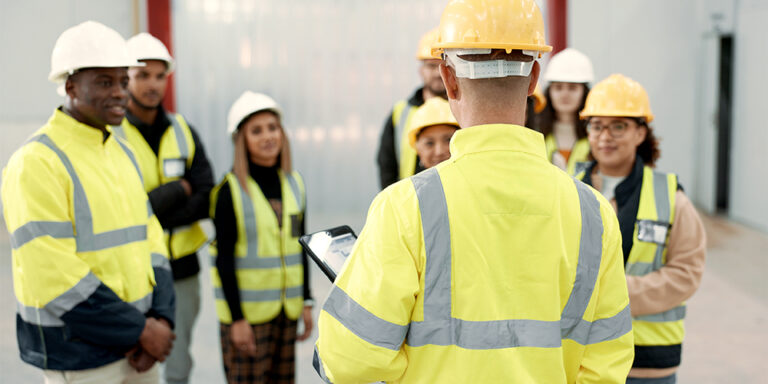
Construction workers face immense physical and mental pressure on the job, as they often perform demanding manual labor and face several pressures. If not addressed, these issues can lead to substance abuse, absenteeism and decreased productivity — all of which negatively impact safety and job performance.
Prioritizing mental health can create a healthier, more productive and safer workforce. One way to promote mental health awareness on the worksite is to conduct regular mental health toolbox talks.
Mental health toolbox talks are brief, regular meetings on construction sites focused on addressing mental health and well-being among workers. These talks aim to create an open environment where workers feel comfortable discussing their mental health issues, breaking the stigma in the industry often associated with these types of conversations.
In this article, we’ll cover strategies to help leadership create a supportive environment, signs to look for that indicate someone may be struggling and helpful resources when team members are dealing with personal and professional obstacles.
Table of contents
Understanding Mental Health Toolbox Talks
Most toolbox talks are held weekly by the superintendent or foreman to focus on specific safety topics. These meetings aim to bring all workers together, regardless of their role, to ensure that everyone receives the same message.
Topics can range from the use of PPE to mental health and well-being. By incorporating these discussions into the routine, leadership can encourage a culture of honesty and support throughout their team, making mental health a normal topic alongside other safety concerns.
The discussions can include topics such as stress management, recognizing signs of distress and providing information on available mental health resources, thereby promoting both physical and mental well-being on the jobsite.
The Mental Health Crisis in Construction
The Center For Construction Research and Training (CPWR) reports that in the United States alone there are 129 suicides among construction workers per day — an average of one death every 11 minutes.
I think construction is one of the few places where showing your emotions isn't fully accepted unless that emotion is anger and frustration. We don't really allow for the full bandwidth of having a tough day. Despite these challenges, there is a growing recognition of the importance of mental health, and efforts are being made to create space for these necessary conversations on jobsites.
There has been a gradual shift to acknowledge mental health awareness in construction. Despite lingering stigmas, particularly among men who often feel compelled to maintain a tough, stoic façade, there are many one-on-one relationships in the construction industry—such as those between a foreman and a worker, or an apprentice and a journeyman—where vulnerability and trust are more common.
These types of relationships on the jobsite can create the open atmosphere necessary for a successful mental health toolbox talk.

Jacob Kunken
Solutions Engineer, Heavy Civil
Procore Technologies
Recognizing Signs of Mental Distress
While not everyone reacts to mental distress in the same way, there are signs to look for. By recognizing these signs early, leadership can take proactive steps to address and mitigate mental health issues on the jobsite.
Some signs may include, but are not limited to:
- Sudden loss of motivation, productivity or morale
- More frequent absences, tardies or longer than usual breaks
- Show of overall anguish and stress beyond the typical stress of the job
- Increased physical, verbal, or substance abuse
Conducting Effective Mental Health Toolbox Talks
Mental health toolbox talks can be used as quarterly check-ins with field teams. This kind of frequency can help workers begin to feel more comfortable speaking on such issues and help end the stigma of mental health issues on the jobsite.
Workers should walk away from mental health toolbox talks with more information on available mental health resources through health insurance or other means and feel encouraged to seek that help if needed.
Structuring the mental health toolbox talk
One primary purpose of a toolbox talk is to inform workers about the available mental health resources. Companies should make sure workers know about mental health services offered through health insurance or other means.
The following is a suggested structure for the talk:
1. Explain why mental health is an important talking point.
Begin with a brief introduction explaining the importance of mental health in the construction industry. Mention how mental health affects safety, productivity and overall well-being.
2. Clearly state the purpose of the toolbox talk.
Make sure employees know the discussion is serious and more than just checking a box of completion.
For example: "Today, we are here to discuss mental health, understand its importance, recognize the signs of mental distress and learn how to support each other."
If appropriate, share a personal anecdote or story to connect with the audience on an emotional level.
3. Share relevant statistics and facts.
Provide context and highlight the prevalence of mental health issues in the construction industry.
Share key statistics about mental health in the construction industry, such as the high rates of suicide and mental health issues among construction workers. Many workers do not understand that they are not alone in what they are feeling.
For example: "Studies have shown that in 2021, the suicide rate for male construction workers was 56.0 per 100,000 and for female construction workers, it was 10.4 per 100,000."
4. Describe the common signs and symptoms of mental health issues.
Explain to teams what signs to look for in themselves and others to know when a mental health issue might be under the surface.
For example: “Do you see changes in a coworker, or in yourself, such as noticeable changes in behavior, increased absenteeism, decreased productivity, withdrawal from social interactions and expressions of hopelessness or despair?”
5. Detail how personal health habits can affect mental health.
Explain to workers the connection between body and mind.
For example: “Managing stress effectively in the construction industry involves prioritizing diet, exercise and adequate sleep. Taking care of your body through regular exercise and healthy eating can boost both your physical and mental well-being. Sufficient sleep also prevents the negative cycle of stress and poor health that exhaustion can cause, ultimately affecting job performance and personal life.”
6. Discuss the impact of mental health on work performance, safety and personal relationships.
Mental health significantly impacts work performance, safety and personal relationships in the construction industry.
For example: “Poor mental health can lead to decreased concentration, lack of motivation and increased errors on the job, ultimately affecting work quality and productivity. Worker safety is also compromised, as mental distress can result in negligence, higher accident rates and greater susceptibility to injuries.
Additionally, the strain of unmanaged mental health issues can spill over into personal relationships with family members, friends and colleagues. This will increase stress and cause issues. Recognizing and addressing mental health concerns is important for job performance and for overall well-being.”
7. Share stress management techniques.
Introduce simple stress-reduction techniques such as deep breathing exercises, mindfulness and stretching. Mention company initiatives like "stretch and flex" programs, which encourages daily stretching to enhance physical and mental wellness on the job.
Inform workers about mental health resources provided by the company, such as Employee Assistance Programs (EAPs), hotlines and counseling services. Use site signage and posters to make this information readily available.
Encourage workers to find healthy outlets for stress outside of work, such as hobbies, social activities and spending time with family.
Teaching yoga classes after my construction job allowed me to interact with people in a soft, gentle and safe space. It gave me a way to unwind and leave the stresses of the jobsite behind. This shift helped me realize the importance of how we treat our bodies. Good health isn’t just about avoiding substances; it’s about making intentional lifestyle choices.
Exercise, whether it’s yoga or something else, coupled with a healthy diet, can clear your mind and alleviate stress. I haven’t had a drink in seven years, and I feel much better about my lifestyle choices. It’s all about deciding to patch, resolve and fix yourself rather than digging a deeper hole.
Jacob Kunken
Solutions Engineer, Heavy Civil
Procore Technologies
Emphasize the importance of seeking professional help when needed and provide information on how to access these resources.
8. Encourage open communication.
Let workers know they are in a safe place to discuss mental health issues and remind them of the open-door policy where they can talk in a private and confidential environment. They need to know there are no repercussions for seeking help.
An open-door policy for employees to discuss mental health concerns is key to creating a safe space when workers need someplace to turn.
Addressing mental health concerns can build stronger, more trusting relationships between workers and supervisors. These genuine connections create a support system making workers feel valued and understood, enhancing their morale and engagement on the jobsite.
Supervisors who acknowledge the importance of mental health also help destigmatize the topic. Leaders who discuss and prioritize mental wellness go a long way in normalizing these conversations, which encourages workers to seek help without fear of judgment.
Discussions about mental health also allow supervisors to address underlying issues that could be the cause of distress, such as work-related pressure, financial stress or personal relationships.
Although an open-door policy welcomes workers to a safe space to discuss their issues, complex issues should be handled by professionals.
Rather than trying to handle complex issues on their own, supervisors can listen and help connect workers toward professional mental health resources. Through local counselors to a variety of online services, supervisors can suggest or help find support for their employees.
Go beyond OSHA regulations.
The Procore Safety Qualified program provides construction professionals with everything they need to know to create a culture of safety.
Successful Mental Health Toolbox Talks Can Change the Industry
Addressing mental health challenges in the construction industry involves overcoming significant barriers, including financial constraints and traditional resistance to non-physical safety topics.
Financially, companies often question the return on investment for mental health initiatives, viewing them as additional costs that can diminish profit margins. To counter this, highlight long-term health benefits such as improved safety, higher work quality and reduced employee turnover, which ultimately contribute to a healthier bottom line.
Making mental health a priority on the jobsite can help bring in a healthier era for the construction industry, boosting employee performance and morale. More importantly, regular mental health toolbox talks bring awareness to the number of construction workers losing their lives to suicide and help lower those statistics.
Construction industry professionals struggling with mental health can contact the National Suicide Prevention Lifeline at 1-800-273-8255 (TALK). Additionally, you can reach the National Suicide Prevention Lifeline by dialing 988. Both numbers provide free and confidential support 24/7.
Was this article helpful?
Thank you for your submission.
100%
0%
You voted that this article was . Was this a mistake? If so, change your vote
Scroll less, learn more about construction.
Subscribe to The Blueprint, Procore’s construction newsletter, to get content from industry experts delivered straight to your inbox.
By clicking this button, you agree to our Privacy Notice and Terms of Service.
Thank you!
You’re signed up to receive The Blueprint newsletter from Procore. You can unsubscribe at any time.
Categories:
Written by

Jacob Kunken
Solutions Engineer, Heavy Civil | Procore Technologies
28 articles
Jake Kunken currently works as Solutions Engineer for Procore's Heavy Civil division. He brings 14 years of experience working in various construction roles in New York and Colorado, including laborer, assistant carpenter, carpenter, assistant superintendent, superintendent, construction manager, safety manager, and project manager. Jake also spent time in EHS as an environmental engineer for Skanska. He’s worked on more than 40 commercial projects from ground-up, to heavy civil, hospital work, and tenant improvement. Jake studied Ecological Technology Design at the University of Maryland.
View profile
Megan Duncan
Megan Duncan is an award-winning journalist based in Hannibal, Missouri. Her work has been featured on Muddy River News, Hannibal Courier-Post, The Whig, Hannibal Magazine, Q Magazine and Her View from Home. She has won two Best of Press Awards including first place from the Illinois Press Association for Localized National Story and third place from the Missouri Associated Press for best humor column. She holds a Bachelor of Arts in Communication from Quincy University.
View profileExplore more helpful resources

Why Don’t We Protect the Whole Person?
Behind every safety incident is a person — and behind that person is a story we rarely ask about. Were they already exhausted before they arrived on site? Did they...
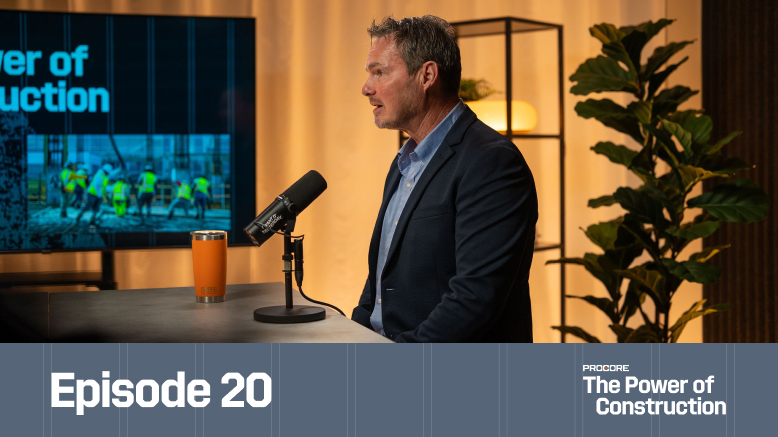
What Drives Better Safety Outcomes—Carrot, Stick, or “Zero Harm”?
On paper, construction has never looked safer. In reality, mental health claims are rising, workers are disengaged and the compliance playbook is broken. Garry Mansfield, co-founder of Scratchie, argues the...
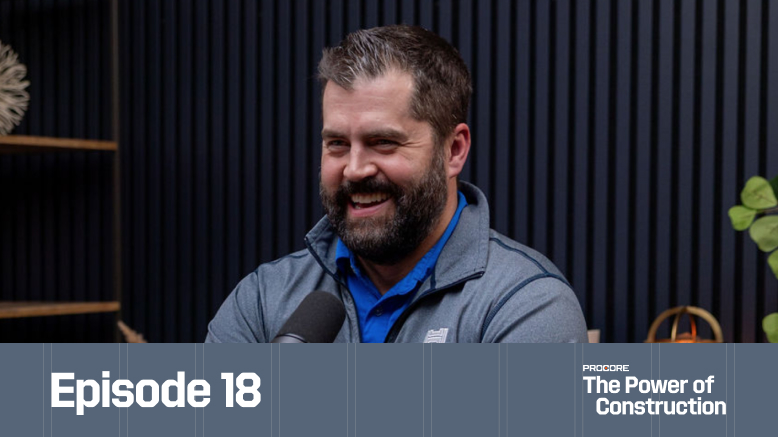
How Close Are We to Bridging the Design-Build Divide?
For decades, construction decisions have often been made based on gut instinct. But what if the real barrier to transformation isn’t technology—it’s the divide between design and construction? In episode...
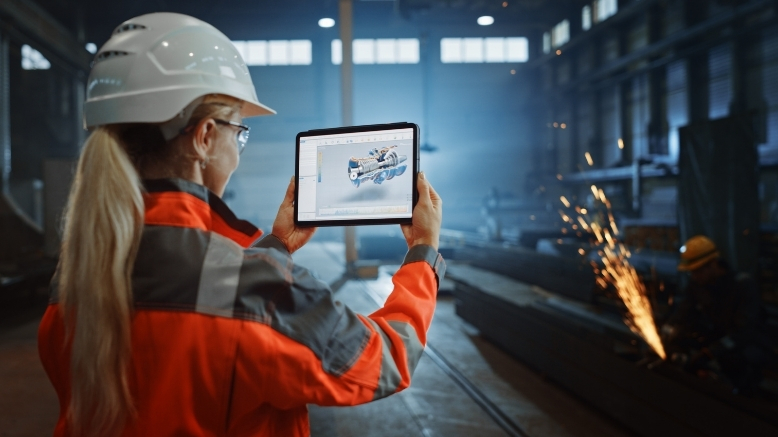
Gain Without Pain: Leveraging Technology for Strategic Safety Programs
In safety, there is always room for improvement, and technology creates the ability to scale safety programs that drive risk mitigation, operational efficiencies and competitive advantage. In fact, builders who...
Free Tools
Calculators
Use our calculators to estimate the cost of construction materials for your next project.
Templates
Find a template to help you with your construction project tasks.
Material Price Tracker
Get the latest U.S. retail prices and view historical trends for common building materials.
Glossary
Explore key terms and phrases used in the industry.
